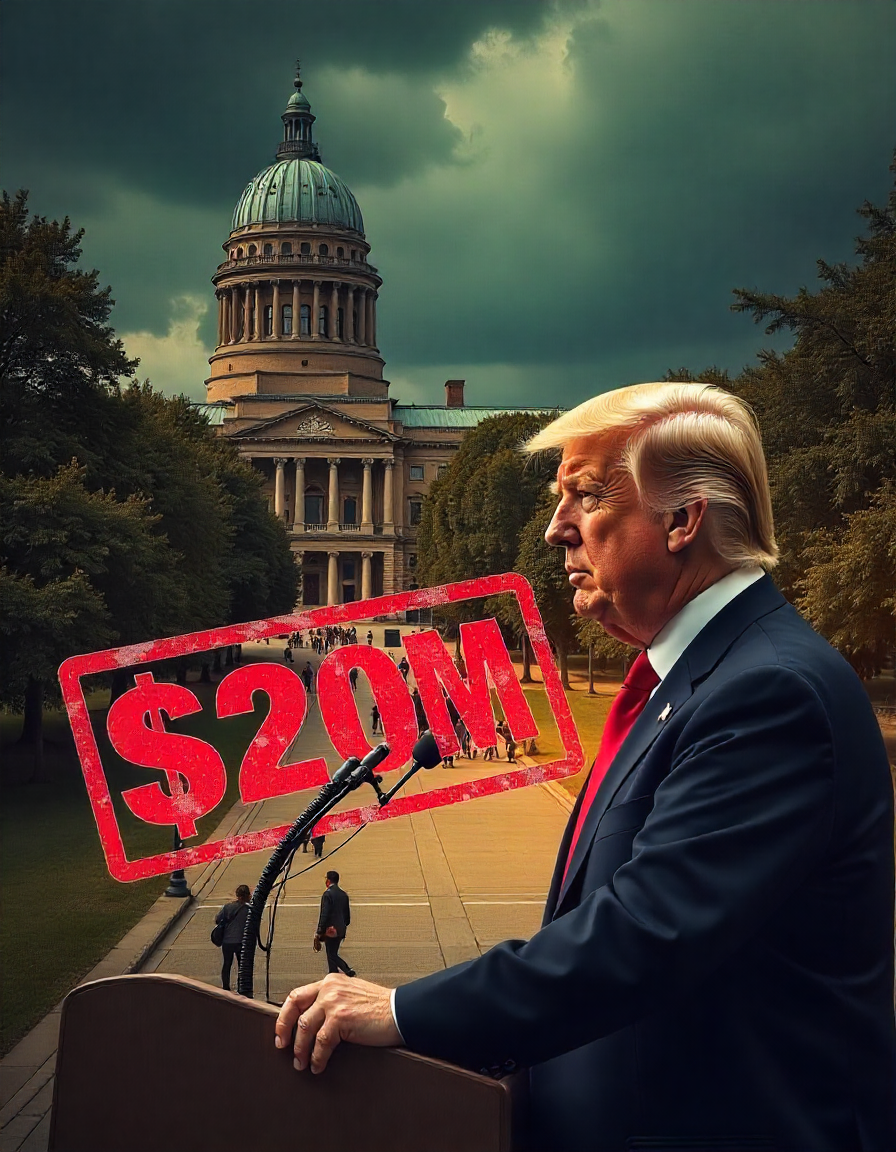Columbia University will pay $220 million in a historic settlement with the Trump administration to restore federal funding, amid ongoing antisemitism investigations and academic freedom concerns.
Columbia University Agrees to $220M Trump Settlement Amid Antisemitism Dispute
Federal deal avoids harsher penalties but sparks controversy over campus freedoms
In a landmark agreement, Columbia University has consented to pay over $220 million to the Trump administration, aiming to resolve intense scrutiny and prevent devastating federal funding cuts. The settlement includes $200 million to the federal government over three years and $21 MILLION to resolve civil rights investigations by the U.S. Equal Employment Opportunity Commission.
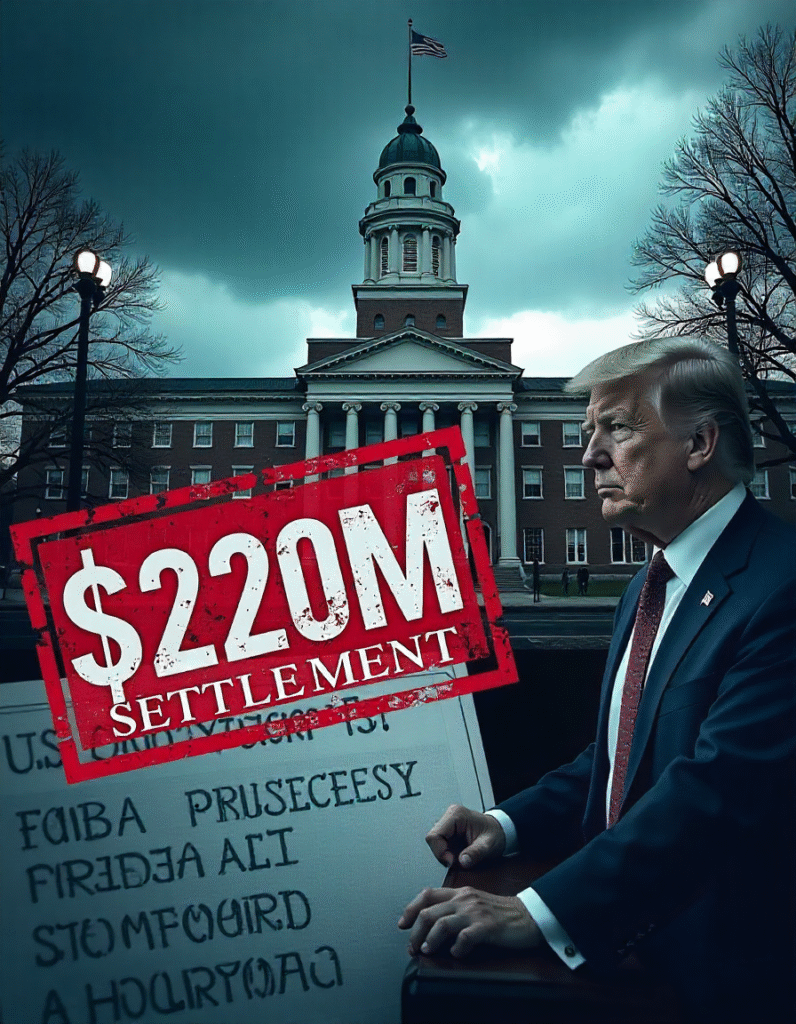
University President Claire Shipman described the deal as “an important step forward” following a prolonged period of governmental oversight tied to claims of campus antisemitism during the 2023 Israel-Gaza conflict.
The Trump administration had withdrawn $400 million in funding from Columbia earlier in 2025, citing the university’s alleged failure to curb antisemitic behavior and anti-Israel protests. With this new deal, that funding will be reinstated.
While the agreement includes significant reforms—like revising Columbia’s disciplinary procedures and adopting a new, broader definition of antisemitism—it stops short of more aggressive measures originally proposed by the administration, such as a consent decree or changes to the university’s governance.
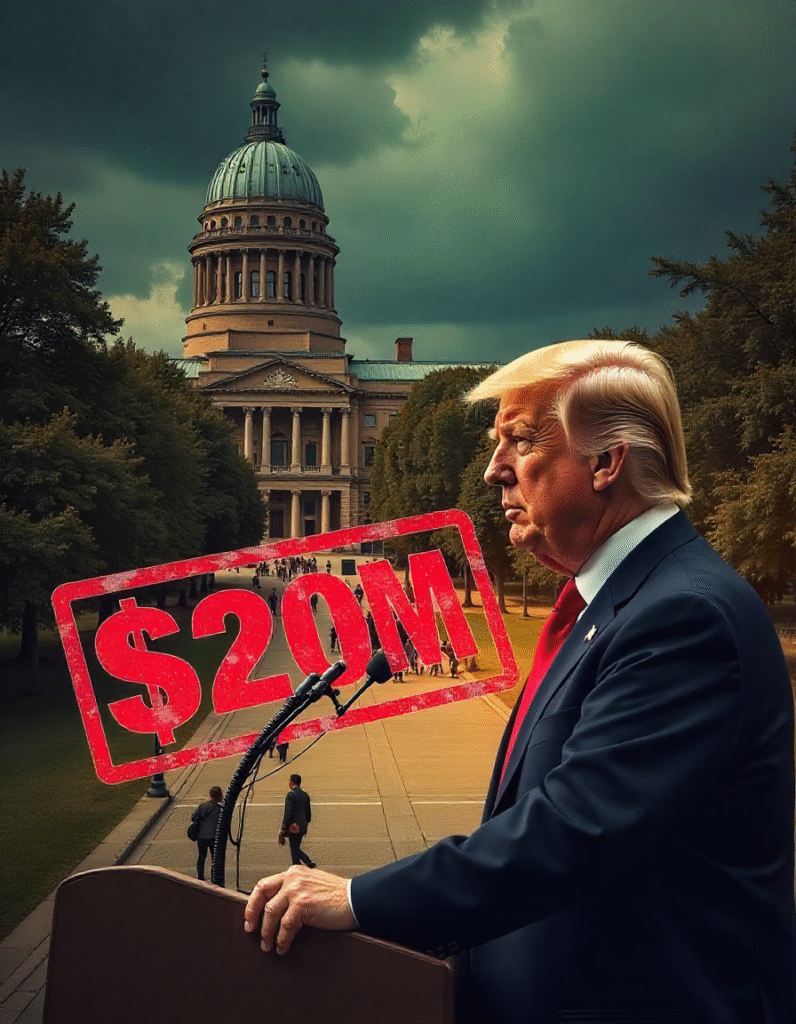
Crackdown on Campus Dissent and Federal Pressure
This is the first such deal struck between a university and a presidential administration that has openly targeted higher education. Critics view it as part of a broader campaign to suppress academic freedom and reshape American universities through financial pressure.
Earlier this week, Columbia confirmed disciplinary action against 70+ students who protested Israel’s military actions in Gaza. The White House had previously accused Columbia of harboring antisemitism and used the protests as justification for freezing research grants and NIH contracts, which could have totaled over $1.2 billion.
In June, Shipman warned alumni that the school was “reaching a tipping point” that threatened its global reputation and scientific contributions.
More Universities Under Fire
Columbia is not alone. Other elite schools—including Harvard, Brown, Cornell, Princeton, Northwestern, and the University of Pennsylvania—have faced similar threats. Harvard, whose $2.6 billion in funding was cut, has responded with a federal lawsuit against the Trump administration, arguing the defunding is politically motivated.
Meanwhile, Brown University narrowly avoided a funding freeze of $510 million by taking swift steps to comply with new federal expectations.
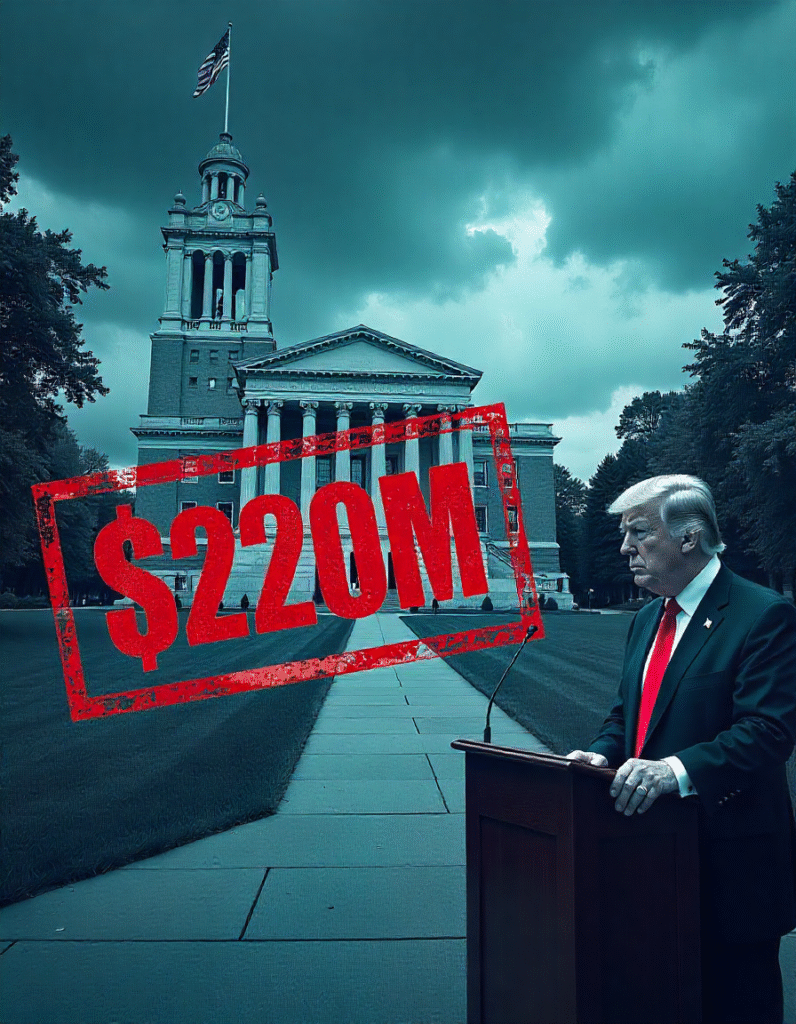
Oversight, Reform, and Political Fallout
As part of Columbia’s settlement, an independent monitor will now oversee compliance, reporting to federal authorities every six months. The agreement also formalizes Columbia’s adoption of the controversial IHRA definition of antisemitism and mandates enhanced training efforts.
While the Trump administration celebrates this as a win in its battle against what it deems “biased” academic institutions, critics argue the deal compromises free speech and sets a dangerous precedent.
Conclusion
Columbia University’s $220 million deal with the Trump administration may restore much-needed funding and close federal investigations—but it also signals a new era of government intervention in university affairs. With similar actions against other Ivy League institutions underway, this agreement could become a blueprint for future clashes between academia and federal power.
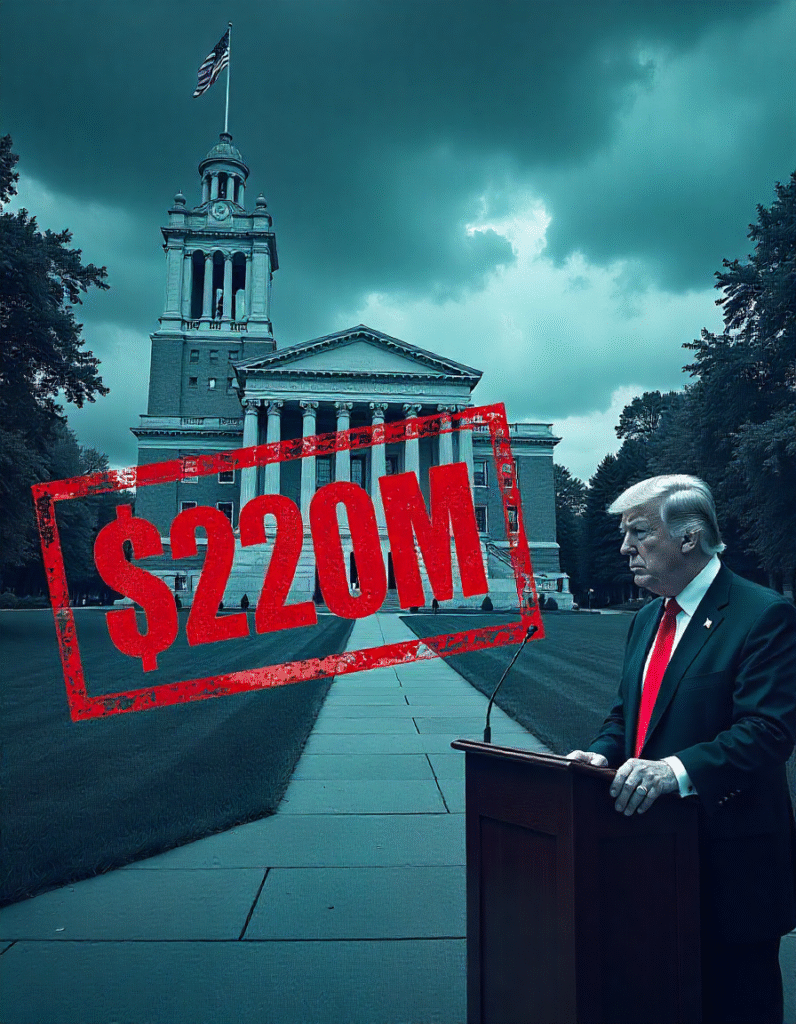
FAQs: Columbia University $220M Trump Settlement
1. Why is Columbia University paying $220 million to the Trump administration?
Columbia University agreed to pay over $220 million in a settlement with the Trump administration to resolve federal investigations tied to alleged failures to address antisemitism on campus. The deal includes a $200 million payment to the federal government over three years and a $21 million payment to the U.S. Equal Employment Opportunity Commission.
2. What triggered the investigations against Columbia?
The federal investigations stemmed from student protests during the Israel-Gaza war in late 2023. The Trump administration accused Columbia of failing to prevent antisemitic actions during these protests and of allowing an environment of hostility towards Jewish students. These claims led to the suspension of federal funding and civil rights probes.
3. How much federal funding was Columbia at risk of losing?
Columbia had already lost $400 million in federal grants and contracts earlier in 2025. Additional funding, potentially exceeding $1.2 billion from the National Institutes of Health, was also at risk. The settlement prevents further losses and reinstates the initial $400 million.
4. What reforms did Columbia agree to implement?
As part of the deal, Columbia must:
- Overhaul its student disciplinary process.
- Adopt the controversial International Holocaust Remembrance Alliance (IHRA) definition of antisemitism.
- Provide antisemitism awareness training.
- Comply with ongoing oversight from an independent monitor.
5. Will Columbia be monitored moving forward?
Yes. An independent monitor, approved by both the university and the federal government, will oversee the implementation of reforms. The monitor is required to file reports with the federal government every six months for accountability.
6. Did the deal include a consent decree?
No. The Trump administration had initially pushed for a consent decree—a legally binding enforcement mechanism—but Columbia avoided this in the final agreement. The university also maintained its governance structure, which had been under threat of overhaul.
7. Is Columbia the only university facing this kind of pressure?
No. Other top institutions like Harvard, Brown, Cornell, Princeton, Northwestern, and the University of Pennsylvania have faced similar federal scrutiny. Harvard, in particular, is currently suing the administration after losing $2.6 billion in funding.
8. What does this mean for student activism and free speech?
The settlement has sparked debate about the balance between combating antisemitism and protecting free expression. Critics argue that the federal pressure could chill student activism, particularly pro-Palestinian advocacy, while supporters say it enforces accountability for antisemitic behavior.
9. What’s the broader political context behind the settlement?
The Trump administration has taken a hardline stance against what it describes as liberal bias and antisemitism in higher education. This settlement marks a significant milestone in its broader campaign to reshape U.S. universities by using federal funding as leverage.
10. How has Columbia responded publicly?
Acting President Claire Shipman framed the settlement as a difficult but necessary compromise to protect Columbia’s academic mission and research capabilities. She emphasized the school’s commitment to diversity, inclusion, and combating all forms of discrimination.
